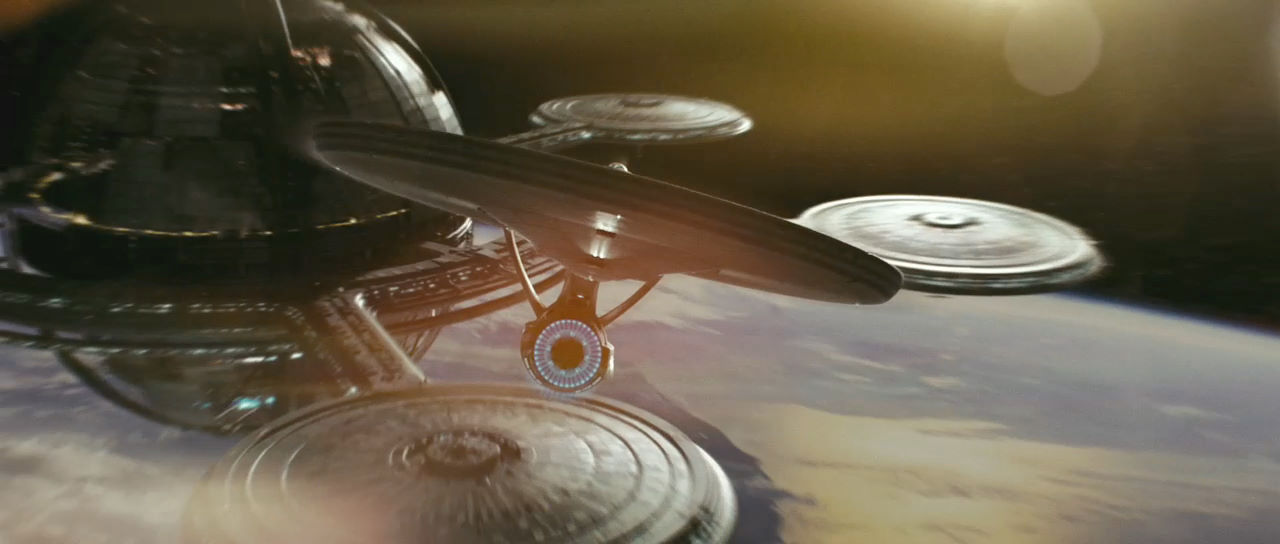Make It So: 5 Factors of a 24th Century Post-Capitalist Future
by Anon Trekkie
17 November 2014

Following last week’s #imoBastani dispatch, ‘Fully Automated Luxury Communism‘, many viewers got in touch with their thoughts on the possibilities for a post-capitalist future and what that might entail. Among the more creative contributions was this anonymous submission. Inspired by the 24th century universe of, er, Star Trek, it suggests an alternate future to that of ‘space capitalism’ as explored in today’s #imoBastani broadcast, ‘Space Capitalism and Green Austerity’. Flight of fancy? Just remember it was Captain Kirk’s ‘communicator’ that inspired Martin Cooper to invent the mobile cell phone…
1. We are post-scarcity and post-capitalism.
In the Star Trek: The Next Generation episode ‘The Neutral Zone’, the Starship Enterprise encounters a floating ship containing three humans cryogenically frozen in the late 20th century. Once unfrozen, one – a rich businessman – confronts Captain Picard to reclaim his riches. Picard gives him an emphatic answer. In the 24th century, “We have eliminated hunger, want, the need for possessions; we’ve grown out of our infancy.” Later he later states that in the 24th century “material needs no longer exist.”
The New World Economy established in the 22nd century had meant that, according to Star Trek: Voyager’s Tom Paris, “money went the way of the dinosaur” – and we can assume private property and capitalism went also. In the 24th century, technologies such as the replicator – akin to a futuristic 3D printer – have meant that even luxury items can be created with ease, losing their scarcity and value. In normal circumstances no one has to work for food or anything they might want. No one faces the ‘choice’ of either working or starving, and you can have whatever cocktail you like in the universe. For free!
2. We are also post-wage labour.
It’s pretty clear that in the 24th century no one starves if they don’t work, but people still do things. As Picard notes in First Contact: “Money doesn’t exist in the 24th century…the acquisition of wealth is no longer the driving force in our lives, we work to better ourselves and the rest of humanity.” People are able to be doctors, engineers, scientists, pilots or do whatever they want to do.
But this doesn’t have to mean stepping aboard a starship. Picard’s parents run a vineyard. Captain Sisko’s dad runs a restaurant in New Orleans. Despite the existence of replicators, such activities are pursued as their own ends (vinification and cookery in this example) without worrying about their worth according to the abstractions of capitalism. The fact that all material needs are
trivially met doesn’t mean life is no longer an adventure or humans no longer strive to flourish both personally and as a society. In fact it seems like once scarcity is removed we might be able to consider what we’d really like to do with our lives.
3. Leisure is taken very seriously.
Despite spending their time on the lofty goal of bettering themselves and humanity, even in Star Fleet, citizens of the Federation like to kick back a lot. In fact there are whole episodes of The Next Generation where senior officers mess about playing the 24th century version of an Xbox while dressing up. Even the captain of a starship can take a while off on shore leave. The right balance between the post-wage activity and just relaxing is carefully measured.
4. There is bread, and there are roses too.
Outside of trips to the holodeck (a virtual reality simulator), there are plenty of opportunities for people to live full, rich lives even aboard a starship undertaking dangerous missions. People play in jazz bands, study literature, learn languages, explore (human and non-human) cultures, perform in plays and take up sports. It isn’t just material needs that are covered – people have time to enjoy the whole of what life can offer.
5. Human life continues.
There are plenty of features of both the Star Trek universe (for example, the strict military hierarchy of Star Fleet) and of the TV programme Star Trek (e.g. some blatantly racist stereotypes) we would rather not have. However one of the great things about Star Trek is how, despite the above, human life goes on. There are tragedies, there are ethical dilemmas, there are torrid love affairs, illness and there is even warfare.
Often when we depict the societies we want to live in, they can come over like a vision of heaven – some distant paradise where all of human suffering is totally eliminated. But the societies we want will prevent all the human ills that are so easily preventable. They won’t prevent all possible human suffering, but prevent so much of it that is more than possible to stop. To paraphrase the words once spoken by a beardy man called Karl, only after capitalism and in this state will the prehistory of human society end and human history truly begin.